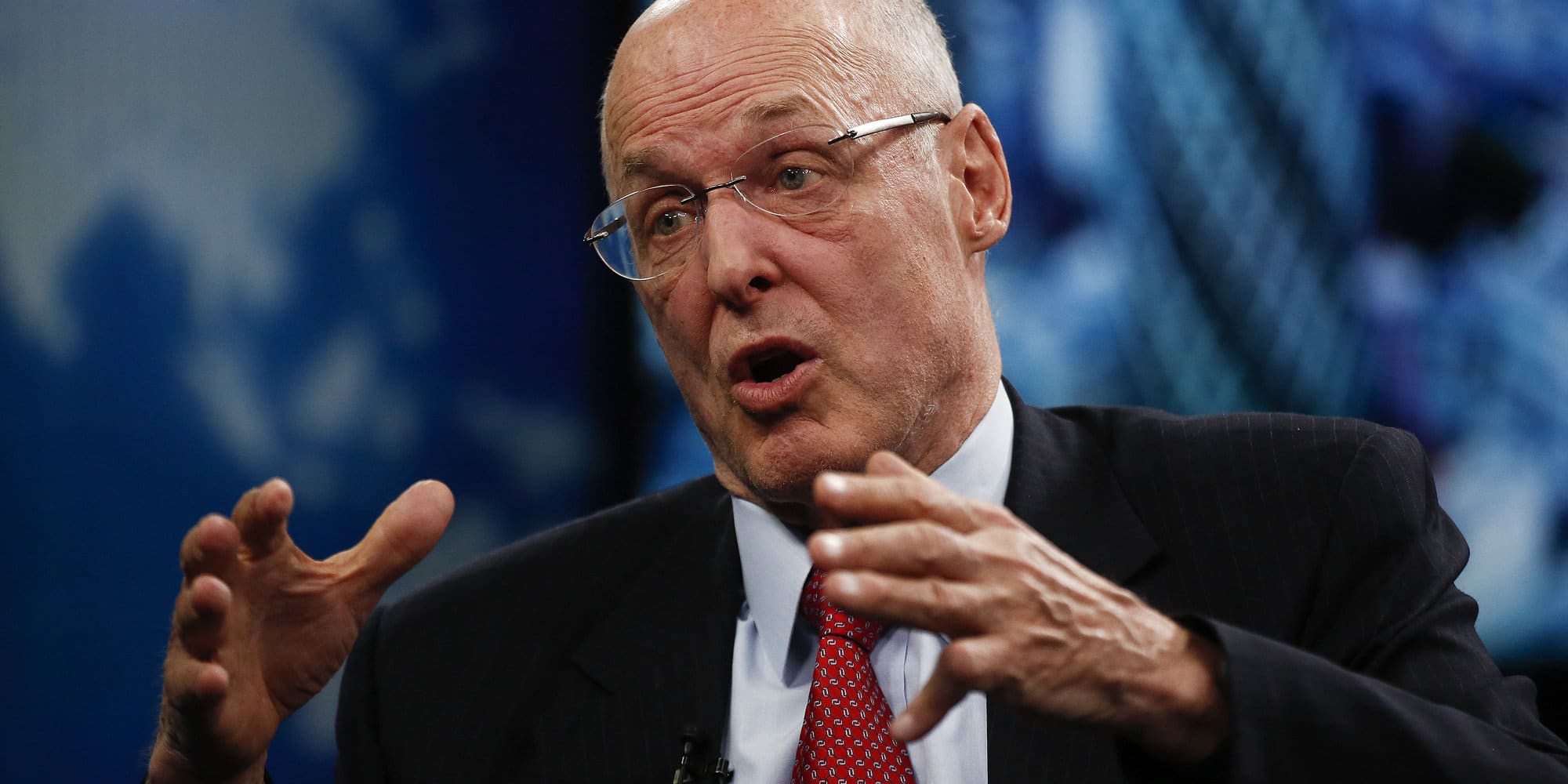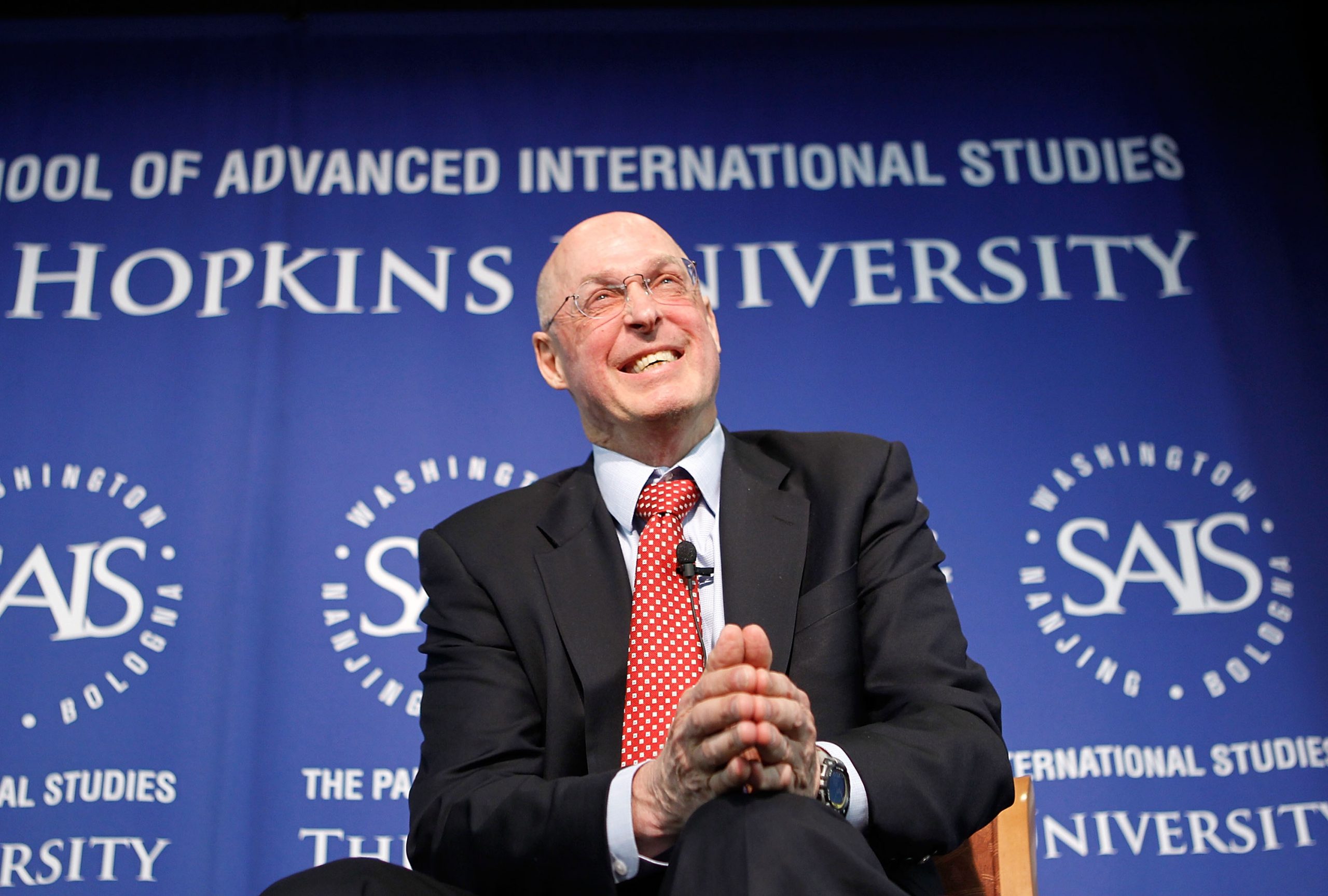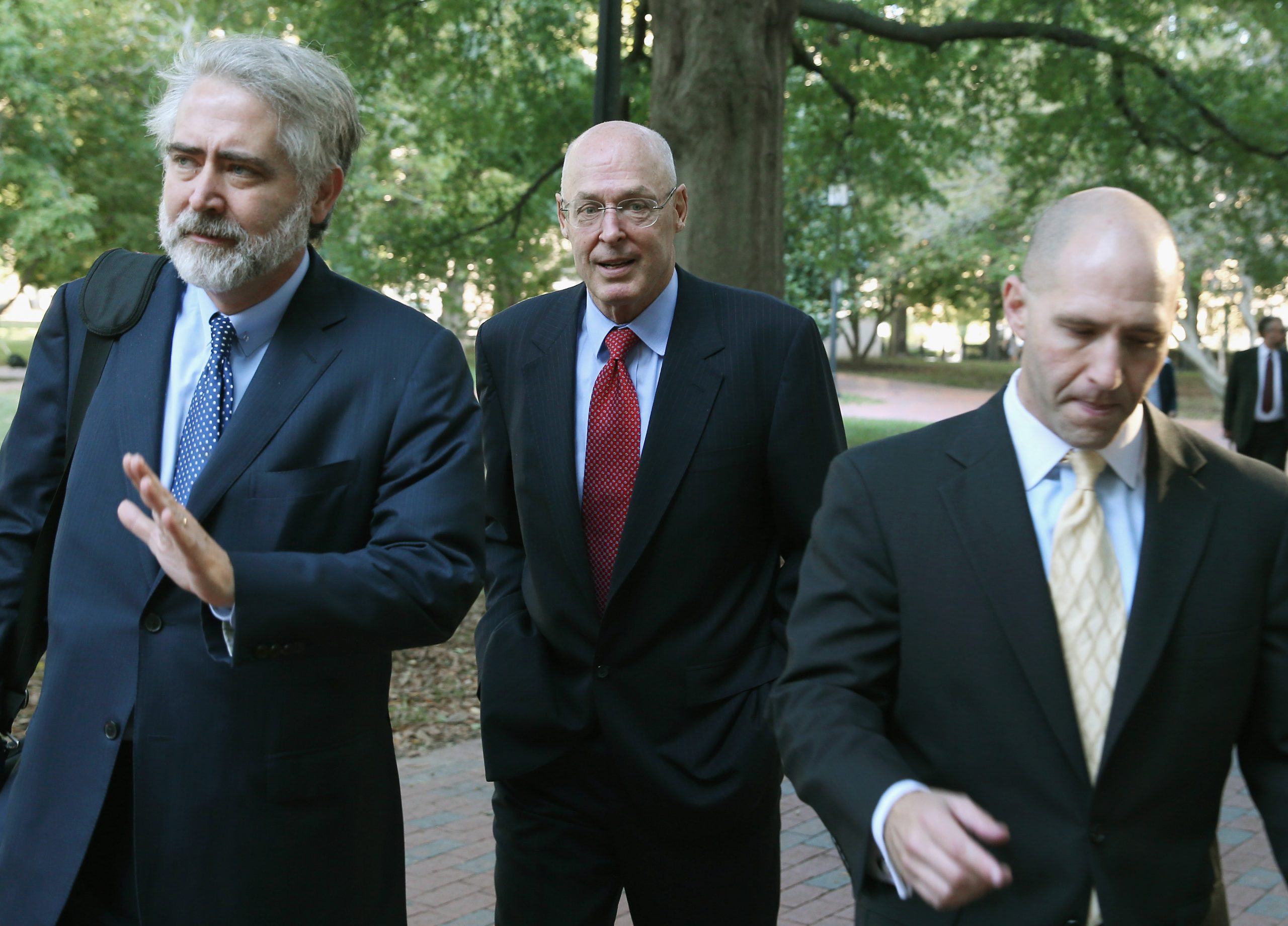Many people often wonder about the wealth of public figures, especially those who have held significant roles in government. There's a natural curiosity, you know, about how someone accumulates a large fortune and what happens to it after they serve the country. This article looks closely at Henry Paulson net worth, a figure who played a big part in American finance and government during a very important time. We will explore his background and how his career shaped his financial standing.
Henry Paulson, as a matter of fact, is a name many connect with Wall Street and, later, with the U.S. Treasury. His story is quite interesting, moving from a top position in the private sector to a crucial government post during a financial storm. We aim to shed some light on the various parts of his financial journey, giving you a clearer picture.
You see, understanding someone's wealth involves looking at different life stages and career choices. We will talk about his work before public service and what happened to his money while he was in government. For instance, some things are truly "made in America, or not made at all," a kind of firm dedication to quality that people respect. This approach to detail can be found in many different areas of life, too.
Table of Contents
- Who is Henry Paulson? A Brief Look at His Life
- The Core of Henry Paulson Net Worth: Before Public Service
- Public Service and Financial Sacrifices
- Estimates of Henry Paulson Net Worth Today
- What Influences a Figure Like Henry Paulson's Wealth?
- Your Questions About Henry Paulson's Finances
Who is Henry Paulson? A Brief Look at His Life
Henry Paulson is a name that often comes up when talking about modern American financial history. He has had a career that spans both high-level corporate finance and government service. His journey, you know, shows how someone can move between these two very different worlds. He is widely recognized for his leadership during a very challenging economic period.
His story, in a way, offers a window into the lives of people who reach the top of their fields. We will look at his early beginnings and how he got to where he is today. It's really quite a path he has taken.
Personal Details and Bio Data
| Detail | Information |
|---|---|
| Full Name | Henry Merritt Paulson Jr. |
| Born | March 28, 1946 |
| Birthplace | Palm Beach, Florida, U.S. |
| Education | Dartmouth College (B.A.), Harvard Business School (M.B.A.) |
| Spouse | Wendy Paulson |
| Children | 2 |
| Notable Roles | Chairman and CEO of Goldman Sachs (1998-2006), U.S. Secretary of the Treasury (2006-2009) |
Early Life and Education
Henry Paulson grew up in a place that might seem far removed from the busy world of finance. He was born in Florida, and his family later moved to Illinois. He went to Dartmouth College, a respected school, where he played football, too. This time helped shape his character, teaching him discipline and teamwork.
After Dartmouth, he continued his studies at Harvard Business School. This step, you see, was a clear move towards a career in the business world. His education laid a strong foundation for the big roles he would take on later. It was a very important time for him, preparing him for what was to come.
From Goldman Sachs to Washington
Paulson started his career in government, working in the Nixon administration. This early experience gave him a look into how Washington works. But then, he moved to the private sector, joining Goldman Sachs in 1974. This was a really big change for him.
He spent many years at Goldman Sachs, climbing the ranks. He became the firm's chairman and chief executive officer in 1998. This role, you know, put him at the very top of one of the world's most powerful investment banks. His success there eventually led him back to Washington, this time as Treasury Secretary. It was quite a journey, basically.
The Core of Henry Paulson Net Worth: Before Public Service
The largest part of Henry Paulson net worth came from his long career at Goldman Sachs. This is a very common path for many people who reach high levels of wealth in finance. His time there, you see, was very profitable. It shows how top positions in big financial firms can lead to significant personal fortunes.
Understanding his wealth means looking at the kind of work he did and the way top executives are paid in these companies. It's a system that can create a lot of money for those at the very top. He was, in a way, at the peak of that system for many years.
His Time at Goldman Sachs
Paulson spent more than 30 years at Goldman Sachs. He started in corporate finance and worked his way up through different divisions. He was known for his strong work ethic and his ability to make big deals happen. His leadership style was, apparently, very direct and focused.
When he became CEO in 1998, Goldman Sachs was going through a major change. It was becoming a public company, which meant its shares could be bought and sold on the stock market. This move made many of its partners, including Paulson, very wealthy. It was a truly transformative period for the firm and for him personally.
Compensation and Wealth Accumulation
As a top executive at Goldman Sachs, Henry Paulson received a mix of salary, bonuses, and stock options. These stock options were a key part of his wealth. They gave him the right to buy company shares at a set price, which could be very valuable if the stock price went up. And it did, quite a bit.
When he left Goldman Sachs to become Treasury Secretary, he had to sell his shares to avoid conflicts of interest. This sale, you know, was reported to be worth hundreds of millions of dollars. It was a huge sum of money, making up the bulk of his reported net worth at that time. This event, in some respects, put a clear value on his years of work there.
Public Service and Financial Sacrifices
Taking on the role of U.S. Secretary of the Treasury is a very big step. For someone like Henry Paulson, it also meant a significant change in his personal finances. The salary for a government official, you see, is much lower than what a top Wall Street executive earns. This move often involves a personal financial sacrifice.
His time in public service was marked by one of the biggest financial challenges in modern history. This period, arguably, defined his public image. We will look at what his job involved and how it affected his money situation. It was a truly intense time for him and for the country.
The Role of Treasury Secretary
Henry Paulson became the 74th U.S. Secretary of the Treasury in July 2006. His job was to advise the President on economic matters and manage the nation's finances. This included things like tax policy, government debt, and the financial system. It's a position with immense responsibility, you know.
He was the chief financial officer for the country, in a way. His decisions could affect millions of people and the global economy. This role is very different from leading a private company. It requires a broader view and a focus on public good, not just profit. It was a very demanding job, indeed.
The 2008 Financial Crisis and Its Impact
Paulson's time as Treasury Secretary is most remembered for his actions during the 2008 financial crisis. This was a period of great economic trouble, with banks failing and markets crashing. He played a central role in the government's response, including the bailout of major financial institutions. It was a truly stressful period.
His decisions during this time were highly debated, but he often stated they were necessary to prevent a total collapse of the financial system. The crisis, you see, put him under immense pressure. It also meant he was focused on saving the economy, not on his personal wealth. This period showed his commitment to public service, even at a high personal cost, in some respects.
Public Service Compensation
As Treasury Secretary, Henry Paulson earned a government salary. This salary, while good for most people, was a tiny fraction of what he made at Goldman Sachs. For instance, the annual salary for a cabinet secretary is around $199,700 as of recent years. This is a standard figure for top government roles.
He also faced strict rules about his investments and financial dealings to avoid conflicts of interest. This meant he could not actively manage his wealth in the same way he might have before. His public service, you know, came with significant financial restrictions. It was a clear shift in his financial landscape.
Estimates of Henry Paulson Net Worth Today
Pinpointing an exact figure for Henry Paulson net worth today can be tricky. Public figures' wealth is often estimated based on available records, property holdings, and known investments. These numbers, you see, are rarely exact. They are more like educated guesses based on public information.
His wealth would have changed since he left government, too. Investments grow, or they might shrink. He has also been involved in new ventures and charitable work. So, the number you see might vary depending on the source. It's really a moving target, in a way.
How Wealth is Calculated for Public Figures
When people estimate the wealth of public figures, they look at several things. They check property records, known stock holdings, and past earnings. They also consider any books written, speeches given, or board positions held. These are all ways money can be earned after leaving government service, you know.
For someone like Paulson, his pre-Treasury wealth is well-documented due to disclosure rules. After that, it becomes more private, but general estimates still circulate. These estimates, basically, try to paint a full picture using the pieces available. You can learn more about financial transparency on our site, which helps shed light on these topics.
Post-Treasury Activities and Investments
After leaving the Treasury Department in 2009, Henry Paulson did not retire completely. He has remained active in various fields. He wrote a book about the financial crisis, which was a bestseller. He also gives speeches and advises on economic matters. These activities, you know, can add to one's income.
He also founded the Paulson Institute at the University of Chicago. This institute focuses on environmental protection and economic relations between the U.S. and China. While this is a non-profit, his involvement shows his continued influence and interests. He also holds various board positions, which can come with compensation. All these things, in some respects, contribute to his ongoing financial



Detail Author:
- Name : Jacinto Effertz DDS
- Username : bauch.berry
- Email : mabelle.haag@gmail.com
- Birthdate : 1981-08-25
- Address : 42659 Grady Pike Apt. 233 Jamalbury, LA 10464
- Phone : +1.865.892.8212
- Company : Macejkovic PLC
- Job : Operations Research Analyst
- Bio : Quis rerum ea aspernatur illum veritatis ut incidunt provident. Necessitatibus voluptatem magnam dolores dolores reiciendis. Qui rerum ipsam sint velit ducimus aut.
Socials
facebook:
- url : https://facebook.com/kulash
- username : kulash
- bio : Atque totam eligendi eos non eum.
- followers : 5101
- following : 2981
twitter:
- url : https://twitter.com/kulas2021
- username : kulas2021
- bio : Impedit itaque non ex commodi inventore accusamus repellendus sint. Delectus et deserunt debitis ullam ex repudiandae. Aspernatur nam dolore sequi.
- followers : 5747
- following : 1221
instagram:
- url : https://instagram.com/kulash
- username : kulash
- bio : Sit est eos aut quia molestiae. Eius sed et quibusdam in.
- followers : 1078
- following : 2773
linkedin:
- url : https://linkedin.com/in/hilario1124
- username : hilario1124
- bio : Qui at quo laboriosam et dolorum nobis.
- followers : 2147
- following : 2510
tiktok:
- url : https://tiktok.com/@hilario_real
- username : hilario_real
- bio : Ipsa praesentium expedita omnis quo laboriosam quis.
- followers : 1702
- following : 2323